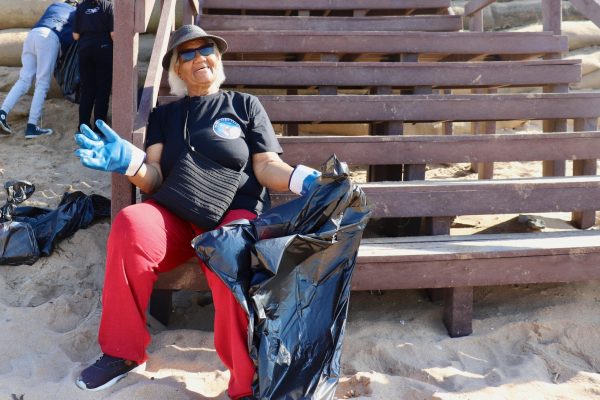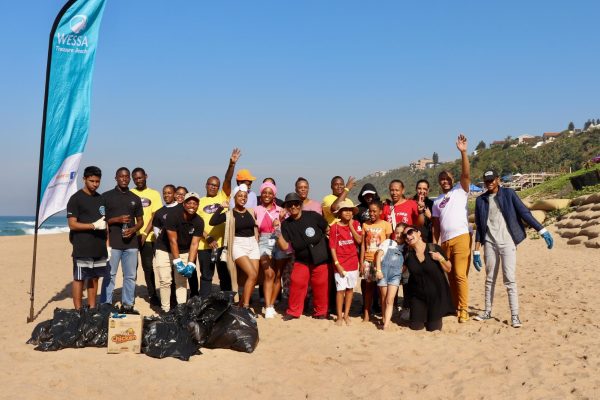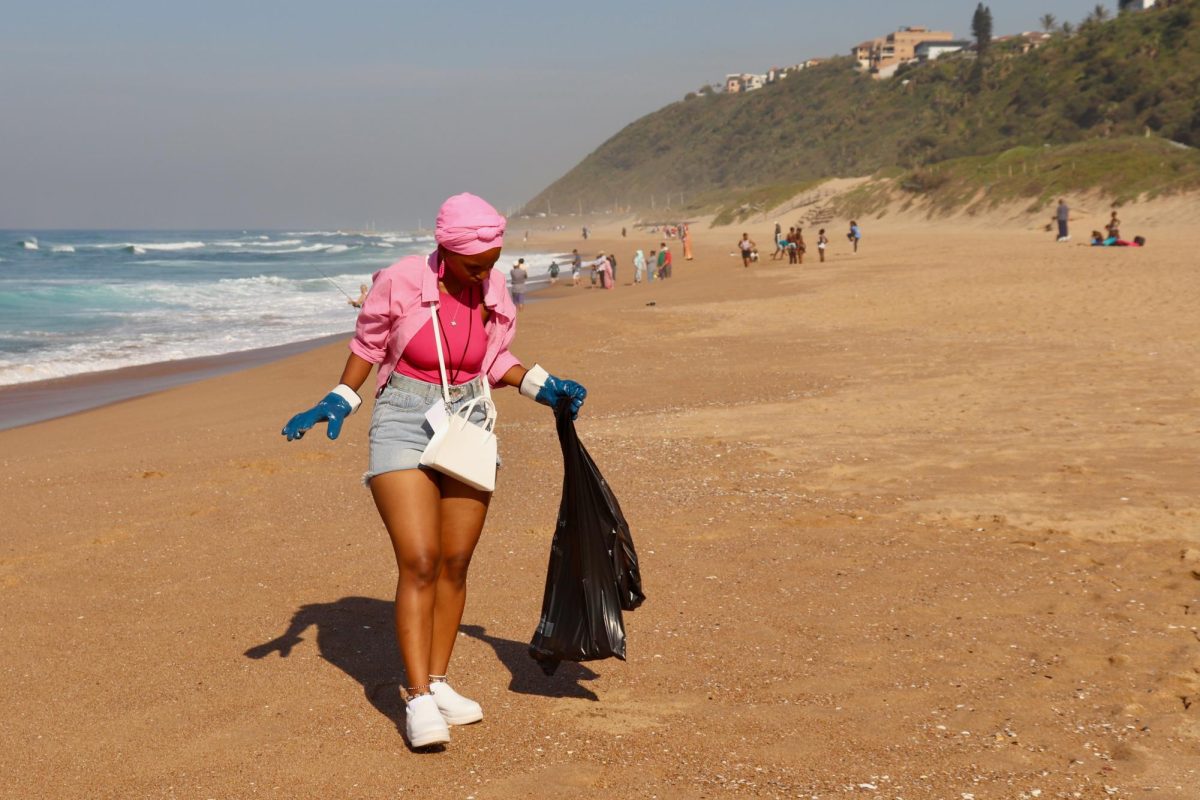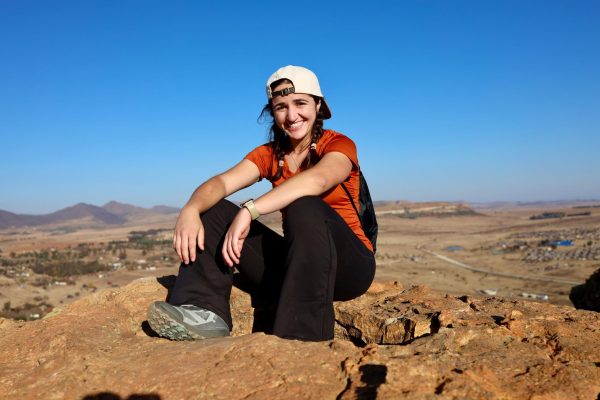Durban, South Africa – About 30 volunteers gathered June 29 at Anstey’s Beach for a beach cleanup sponsored by the Wildlife and Environmental Society of South Africa (WESSA).
Eight-year-old Juliette Swanson, who was picking up trash with her oversized gloves alongside her mom, Ginny Swanson, was among a group of predominantly young volunteers at the event. Her mother, who moved to South Africa from France 25 years ago, said Juliette has a “great love for the environment.”
“She worries about the fish eating plastics,” Ginny Swanson said. “And she just wants to keep South Africa clean.”
Ginny and Juliette Swanson are both involved with the Bluff Tidy Team, a volunteer group founded by 15-year-old Waylon Murray, who hosts weekly beach and park cleanups along The Bluff, an area of coastal suburbs south of Durban center. Since the group was created in March, members have removed 1.5 tons of beach litter, according to the group’s Facebook page. It now has 159 members.
“I just wanted to do something for the environment,” Murray said, “and I wanted to go above and beyond.”
Ginny Swanson said her daughter was inspired by watching videos on the YouTube channel Dodo Kids, a popular series of shows, including one called “Rescued!”, that features a then 8-year-old animal rescuer from the U.S. named Roman McConn.
“I watched the animal show where they like to rescue animals and they try their hardest to just keep the environment clean,” Juliette Swanson said.
Norma Maclou, a member of the Bluff Tidy Team and founder of the Malibongwe Senior Service center in the neighboring Wentworth suburb, said she participates in the beach cleanups every Saturday. Originally from the Eastern Cape province, Maclou moved to Durban in 1969 and remembers when apartheid laws segregated beaches by race. Beaches were desegregated in 1994 when South Africa became a democracy.
“I joined this young man,” said Maclou, pointing to Murray, “for cleaning up, to teach the young and old that we must keep our environment clean.”

Maclou brings children with her to each of the cleanups to empower youth, she said.
“As a senior citizen, I made sure that I come to teach,” Maclou said, “because we want to leave the legacy behind and encourage the youth and the young children to come and do the cleanup.”
According to a 2022 poll conducted by UNICEF South Africa, 64% of young South Africans have already been directly affected by a climate- or environment-related event. In April 2022, a sub-tropical storm Issa caused flooding and mudslides in the Durban area. The storm killed 448 people, destroyed over 12,000 houses and displaced over 40,000 people, according to the United Nations Office for the Coordination of Humanitarian Affairs.
Sphokazi Mazibuko, who attended the beach cleanup and is a volunteer for the international environmental organization Greenpeace, said the drinking water in her community is still contaminated two years after the 2022 storm.
“They told us that the water was cleared to drink, but then my grandma did get sick after a month of drinking it. So she does not drink any tap water anymore since the floods,” Mazibuko said. “We have to boil the water.”
Problematic water quality issues are a combination of poor infrastructure and urban planning inherited from British colonial planning, said Bobby Peek, director of the South African nonprofit environmental justice organization groundWork. When Durban was built, planning did not take into account the future of the city, he said.
Current city officials are culpable as well, Peek said, by not repairing or managing the city in a way that looks toward the future. He pointed to the city’s attempts to repair damaged pipes after the 2022 floods as one stark example.
“Instead of talking to local people who experienced the flood, the city came in with engineers and just replaced pipes,” Peek said. “A year later, the next flood came in and took it out again.”

Paleni Iyer, a co-facilitator of Greenpeace Durban Local who attended the cleanup, said she is worried about the future of young South Africans and thinks educating youth about current problems is key.
“It’s a passion that comes from within,” Iyer said. “If you already love the planet, care for the planet, then we can actually show them and give them the awareness of how to handle it and how to go about doing your actions in order to prevent climate injustices that we face today.”
Mazibuko agreed with Iyer.
“If you teach them to love something, it’s going to teach them how to protect it,” said Mazibuko, as she and Iser gathered litter for their bags.
At the end of the hour-long cleanup, volunteers had filled about 10 black trash bags. Nkanyiso Shozi, educational officer intern at WESSA who facilitated the beach cleanup event, said he was proud of the turnout and hopeful for future involvement in WESSA events.
“I think if we can see everyone involved in the environment, that’s what we are trying to do,” Shozi said. “We’re trying to encourage public participation, everyone, no matter how old or young you are, to come and participate.”















































